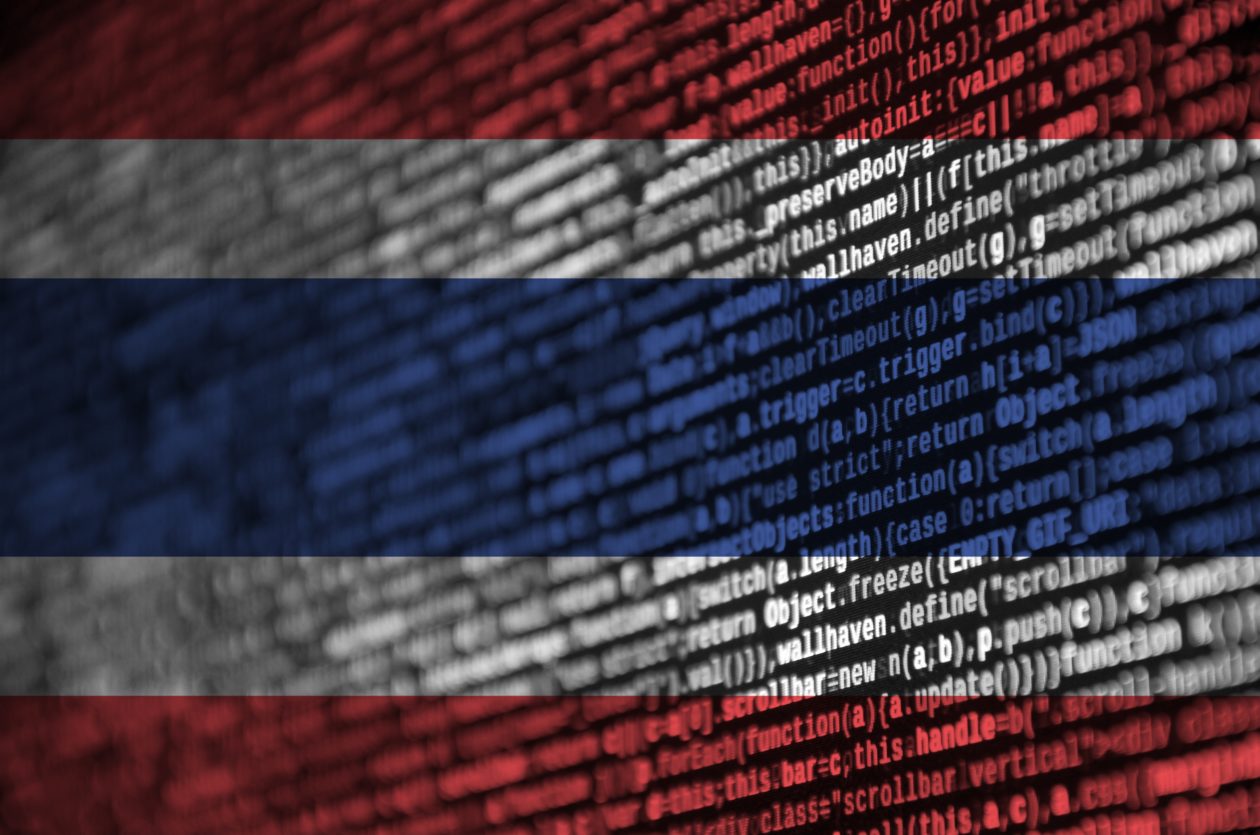Thailand, famous for its white-sand beaches, royal palaces and ancient Buddhist temples, is a popular tourist destination. In fact, tourism is one of the country’s most important economic sectors, contributing nearly 20% to the GDP and sustaining 21% of employment in 2019, according to the World Travel and Tourism Council.
Thailand hosted nearly 40 million foreign travelers who generated over US$56 billion for the country in 2019. Then came the pandemic. After shutting its borders for over a year, the country lost an estimated US$80 billion in revenue.
To recoup some of this lost revenue, the Tourism Authority of Thailand (TAT) is seeking to entice the crypto wealthy to the country’s shores. TAT is working with regulators and Bitkub, the country’s largest crypto exchange, to enable tourists to pay with cryptocurrencies and position the country as a “crypto-positive society,” TAT Governor Yuthasak Supasorn told Bloomberg in a recent interview.
Supasorn said that accepting digital tokens for travel will make the nation more attractive to crypto holders and help boost tourism revenue despite lower numbers of foreign travelers.
“There are people who have become wealthy from holding digital currencies and they may want to use the wealth they have accrued,” Supasorn said. “If they can use their currencies here without having to exchange it, or be faced with government taxes, then it would create convenience for them.”
Thailand opened its borders for vaccinated travelers from over 60 countries just last month. However, Supasorn said tourism is expected to lag and attain pre-Covid levels only by 2024.
TAT first announced in February its intention of attracting crypto holders, specifically from Japan, by enabling crypto payments at tourism destinations. But since Thailand does not accept cryptocurrencies as legal tender, allowing crypto payments is easier said than done. However, Supasorn said that TAT is laying the groundwork for it by the time global travel restrictions are fully lifted.
According to the Bloomberg report, the authority will set up a new unit that will issue its own crypto token — TAT Coin, produce a wallet and build a new tourism ecosystem next year. TAT is already collaborating with the Thailand Securities and Exchange Commission, the Bank of Thailand and Bitkub over the project.
Bitkub founder and CEO Jirayut Srupsrisopa recently told the Bangkok Post that the private cryptocurrency market will back the TAT Coin with the digital infrastructure it needs, provided the government approves it first. “Our national GDP could grow six times if we can strengthen this market,” Srupsrisopa added.
While the crypto tourism campaign involving the issue of TAT Coin holds potential, the authority is being cautious and examining all regulatory obligations, preventive measures against cybercrimes and ensuring customer protection, Supasorn said.
Thailand has been tightening its grip on the crypto market
Supasorn aims to paint Thailand as a crypto-friendly destination for foreign travelers. However, as one of the first Southeast Asian nations to introduce crypto regulations, Thailand’s policies toward crypto are rather ambiguous.
Thailand first regulated crypto with its Emergency Decree on Digital Asset Businesses law that came into effect in May 2018. The law classified virtual currencies as a new asset class and put the SEC in charge of regulating the market while a separate decree levied a 15% capital gains tax on digital asset transactions.
The law also prescribed penalties including jail time to prevent fraud, money laundering, tax avoidance and other crimes. The country’s crypto legislation was introduced after the Bank of Thailand — the country’s central bank — banned financial institutions from dealing with cryptocurrencies in February 2018.
Since the introduction of the digital assets regulation, the government has updated regulatory oversight and obligations to address various aspects of the evolving crypto sector. Many of these updates tightened the government’s control over the crypto market while on multiple occasions denouncing crypto.
For instance, in February 2021, finance minister Arkhom Termpittayapaisith criticized excessive speculation in the crypto market and said that cryptocurrencies pose a risk to Thailand’s capital market. In March, the SEC published draft legislation that proposed cryptocurrency trading be restricted to those having a minimum of 1 million baht (approximately US$33,000) annual income or those having a minimum net worth of 10 million baht, excluding the value of their homes.
The proposed legislation also said investors should have a minimum experience of two years trading stocks and futures before they are allowed to trade crypto. The draft legislation, which was introduced with the aim of protecting investors, sparked a massive public outcry as it could potentially prohibit low- and middle-income families from crypto trading. The SEC backtracked on the draft, saying it was released to gauge investor sentiment.
After an SEC hearing, the markets regulator replaced the annual income with crypto education requirements in April. The SEC updated the proposed legislation, which now said that those interested in investing in crypto must have previous experience in crypto trading and those new to the market have to attend a training course or pass a test to prove knowledge before they can start trading.
In March, the Bank of Thailand also outlined its regulatory approach towards stablecoins and declared Terra’s THT stablecoin as illegal.
In May, Thailand’s Anti-Money Laundering Office introduced stringent know-your-customer requirements for opening crypto trading accounts. The new guidelines required customers to be physically present for verification and went into effect in September. The law essentially halted new account opening by exchanges that had to change their operational procedures to comply with the new requirements.
In June, the SEC announced that decentralized finance projects that issue tokens would require a license to operate in the near future. Later that same month, the SEC clamped down on memecoins and non-fungible tokens (NFTs). The regulator introduced a new rule that banned memecoins like Dogecoin, Shiba Inu and SafeMoon as well as non-fungible tokens (NFTs), fan tokens and exchange tokens. It also prohibited exchanges from providing services related to such tokens. The markets regulator gave exchanges 30 days from the date of announcement to de-list such tokens and comply with the rule.
Though stringent, the law was introduced to protect investors from rug pulls after several memecoins crashed, Varit Bulakul, head of digital assets at the Booker Group, told Forkast.News. It’s the same reason for banning NFTs whose prices can be highly volatile, Bulakul added.
In July, the country’s central bank issued a warning against using cryptocurrencies like Bitcoin and Ether for payments. Later that same month though, the Bank of Thailand published new guidelines to promote and regulate the use of blockchain in the financial sector and despite the previous developments, Siam Commercial Bank, the country’s oldest and biggest bank, bet US$110 million on DeFi.
In August, the SEC proposed additional rules for digital asset custodians to prohibit crypto businesses from using investor assets to benefit themselves or their clients. This meant that lending services and yield products where customer assets are lent to borrowers would be prohibited.
In September, the SEC temporarily suspended the license of crypto exchange Huobi and recommended the finance ministry to revoke it permanently due to an “irreparable” breach of regulations. Huobi was ordered to return all assets to Thailand-based customers by Dec. 2.
Just last week the SEC began accepting comments for regulation of cryptocurrencies that are designed to hide the identity of participants, generally referred to as privacy coins. Examples of privacy coins include Monero, Zcash, among others.
And on Wednesday, the Bank of Thailand issued renewed warnings to companies against accepting crypto payments. The central bank said the high volatility of crypto prices and risks of cybercrime can impact customers and businesses. It added that the bank is working with the SEC to formulate regulations to use digital assets for payments to limit risks.
It’s not all bad news
Despite all the clampdown and regulatory challenges, crypto and blockchain developments in Thailand have not halted. In August, a blockchain-based cross-border remittance corridor between 27 countries in the European Union region and Thailand was set up.
In September, Fraction, a subsidiary of Hong Kong-based fintech firm Fraction Group, received a license from the SEC for an asset-backed token service offering based on the Ethereum blockchain. The license allows it to list and trade tokens for fractional ownership of physical or digital assets.
Last month, Thailand’s biggest department store chain announced that it has developed its own blockchain-based digital currency called C-Coin and is testing it among employees before public issuance.
Interestingly, Bitkub launched its own NFT platform late last month in spite of the ban imposed on NFTs by the SEC. And Jay Mart, which operates the token JFin, is launching an NFT marketplace on Dec. 16.
Although Bitkub’s NFT marketplace has been operational for a few days, there has been no reaction from the SEC. But even though the law about NFT marketplaces is unclear at the moment, it will be cleared up once JNFT launches since Jay Mart is closely engaged with the SEC on regulatory compliance, Bulakul said.
And on Tuesday, Bitkub and The Mall, which operates top-tier shopping centers in the country, announced a joint venture that would enable customers to pay with crypto at participating shopping malls. This is despite the warning against crypto payments issued earlier.
Is Thailand really crypto-positive?
Thailand has seen a huge spike in crypto trading since last year. The number of cryptocurrency trading accounts in the country has been growing by 27.6% month-on-month this year. While there are only 1.3 million crypto trading accounts in Thailand — less than half the number of stock trading accounts — it is the pace of their growth that has been remarkable.
Even in the field of decentralized finance (DeFi), Thailand is leading. According to Chainalysis’ Global DeFi Adoption Index, Thailand ranked third after the U.S. and Vietnam in DeFi adoption. Investments in the crypto space have also been increasing with Booker Group intending to invest US$48 million on DeFi projects and apps, and Siam Commercial Bank buying a majority stake in Bitkub for approximately US$535.6 million.
So despite all the regulatory hurdles, Thailand’s crypto sector has been thriving. According to Bulakul, Thailand has taken a positive stand on crypto and the regulations are simply being introduced to protect investors and not to thwart innovation.
“We are quite crypto-positive because the SEC is now giving out their own content [on crypto] and they are not negative,” Bulakul said. “Regulation has to be updated regularly and the whole point is just to prevent bad actors from taking advantage of the crypto market.”
The SEC is trying to protect the interest of retail investors, the majority of whom lack experience in crypto trading, Bulakul said. “Their [the SEC’s] job is to protect the small retail investors who have little experience … The SEC understands there’s a lot of opportunities to capture, and I don’t think they want to block these opportunities as long as it doesn’t cause any damage to retail investors,” he added.





